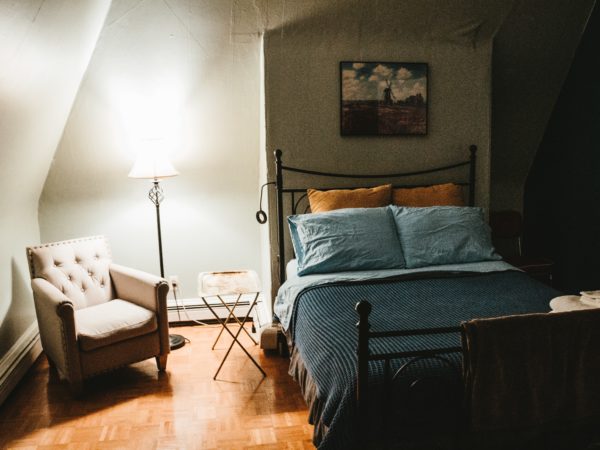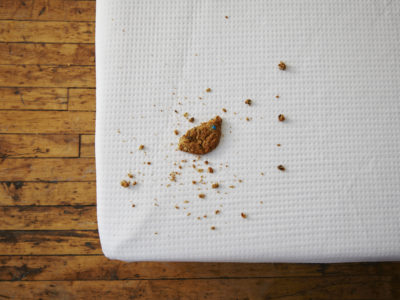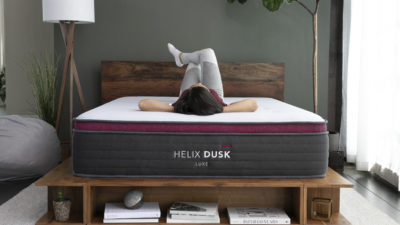Most mattresses last between 7 and 10 years, although superior-quality mattresses can last a lot longer if they are properly cared for. How long a mattress lasts, however, mostly depends on the types and quality of the material it’s built with.
The lifespan of your mattress depends on the mattress type, maintenance, frequency of use and a variety of other factors. We will take you through all of that and address proper care best practices to make sure your new bed lasts its optimal lifespan.
The Lifespan of Different Types of Mattresses
Memory Foam Mattress
On average, memory foam mattresses last longer than your standard spring mattress. But it really depends on the quality of the foam. Most memory foam mattresses have a lifespan of approximately 7 to 10 years. If yours has a pillow top, mattress cover or additional comfort layers, this can also affect the lifespan.
Latex Mattress
Mattresses made of latex tend to outlive most other mattress materials. Natural latex mattresses usually last over 10 years. For more information, read our post on how long latex mattresses last.
Innerspring Mattress
Standard innerspring mattresses last between 7 and 10 years depending on the weight of the sleeper(s), the build quality, and whether it lies on a foundation. There is a wide variety in the quality of springs.
Hybrid Mattress
Hybrid mattresses typically last between 7 and 15 years. However, the build quality of the wrapped coils can make a big difference in the mattress’s overall longevity. This varies across the mattress industry, so it’s best to get a quality mattress, like those made by Helix.
Waterbed
In some cases, lightly used waterbeds can last well over a decade. Most waterbeds, however, last an average of 10 years.
Air Mattress
Inflatable air mattresses last between 10 and 12 years depending on how well lightly it is used and the quality. These are typically for a household with intermittent guests or special occasions.
Gel-Infused Foam Mattress
Gel-infused foam mattresses last between 8 and 12 years, depending upon the quality.
Futon Mattress
Futon mattresses tend not to last as long as conventional mattresses. These mattresses have an average lifespan of 6 to 8 years.
What Can Impact The Age of a Mattress?
There’s no easy answer to the question of how long a mattress will last. The factors listed below help explain the wide variation in the life expectancy of a mattress.
How Often It’s Used
How long a mattress lasts mostly depends on the frequency of use. A mattress that is rarely used should exceed its warranty, whereas mattresses that are used every day tend not to.
Cleaning and Maintenance Habits
Clean mattresses last longer than dirty ones. Similarly, mattresses that lay on the floor tend to wear down faster than mattresses on box springs or foundations. If you find dust mites or (gulp) bed bugs infestation, obviously that plays into things.
Body Weight of Sleepers
Heavier sleepers put more pressure on the mattresses. Lighter sleepers do not exert as much compression on the mattress, causing it to last longer.
Materials and Quality
High-quality, American-made mattresses outlast conventionally-made mattresses. The material type matters too. It’s best to do your research, understand your needs and find one that not only is built to last a long time, but also meets your comfort criteria. For this, Helix designed a Sleep Quiz that can help mattress-seekers find their ideal fit based on their body type, preferences and sleep position.
Signs of A Dying Mattress
Noticeable Wear and Tear
If you’re wondering how long you should keep a mattress, look at its condition. If you start to see rips, scuffs, and fraying, then it’s probably time to invest in a replacement.
Increased Sagging
A sagging mattress won’t support your body’s spinal alignment and can lead to long-term health issues. To avoid this, upgrade your mattress once it starts to sag.
Increased Allergies or Asthma
If you’re wondering how long do you keep a mattress, we suggest looking inward. If you find that your asthma or allergies are flaring up when you’re in bed, it’s time to throw it out. Old mattresses attract allergens and other potentially harmful contaminants that can have an adverse effect on your health.
Getting Bad Sleep
Usually, tossing and turning through the night is a good indication that it’s time to throw out your old mattress and invest in a new one. If you’re asking yourself, “how long does mattress last,” then consider whether your sleep quality is suffering. Mattresses that leave you restless and uncomfortable have probably reached the extent of their lifespan.
Neck and Back Pain
How many years does a mattress last? As many years as your neck and back remain in good health. If you start to experience spinal or vertebrae pain, it’s time to upgrade your mattress.
How To Conserve Your Mattress
Clean It
Mattresses accumulate dust, dead skin cells, bodily fluids, and much more. To prevent bacteria from decaying your mattress, clean it regularly.
Top It
Invest in a latex or memory foam mattress topper to prevent the build-up of the following potentially-harmful contaminants:
- Dead skin
- Sweat
- Bacteria
- Mildew
- Mold
Thinking About A New Mattress?
In this guide, we answered how long a mattress should last. Now that you know how long your mattress should last, it’s time to invest in a quality mattress that you rely on for years.
To find the perfect mattress for your body type, sleep position, and unique sleeping style, take the Helix Sleep Quiz and check out our mattress promos to find the best value.
















